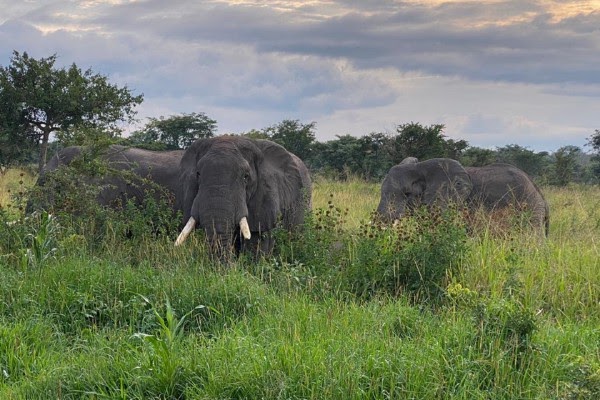EU Supports Conservation In 5 Protected Areas In DR Congo
The European Union (EU) is supporting the conservation of five protected areas in the Democratic Republic of Congo as part of its Sustainable Environment and Agriculture Programme (EAD).

The European Union (EU) under its Sustainable Environment and Agriculture Programme (EAD) is assisting in the conservation and valorization of five protected areas in the Democratic Republic of Congo.
The programme is executed by the unit in charge of support to the national coordinator COFED within the context of the 11th European Development Fund (EDF).
The five protected areas benefitting from the programme are the National Parks of Virunga, Salonga, Garamba, the Upemba-Kundelengu complex as well as the biosphere reserve of Yangambi.
The EAD is an innovation of the European Development Fund that aims at ensuring the amelioration of the living conditions of riverine populations in the protected areas. It also involves durable sedentary agriculture.
Among the projects so far realised within the context of the programme, according to COFED, the efforts put in place have led to economic activities in Virunga Park involving three hydroelectric dams and a chocolate manufacturing facility.
“At the level of the Virunga Park, our achievements include management of large mammals, tourism which has been on the rise but we also have the problem of insecurity in the East,” explained Pascaline Mvula, who is in charge of the environment and sustainable development programme of COFED during a press conference in Kinshasa Friday, March 5.
“We also have an important aspect which we have developed for economic windfalls which is hydroelectricity because where there is agriculture without electricity, there is no small and medium-size enterprise that can develop. This aspect has a visible impact. There is also soap production.”
“At the level of Garamba, there has been a reduction in poaching and also support to small animal breeding projects.”
She further stated that the project has also developed a department of sustainable agricultural development.
“That is how we have rehabilitated the possibilities of desert agriculture. We have signed a contract with the University of Kinshasa for the training of cadres. There is also the construction of the flux tower which is the first in Africa.”
The 11th European Development Fund is one of the most important bilateral monetary envelops with more than 620 million euros mobilised on four priority axes namely health with 22 million euros, environment and sustainable agriculture with an envelope of 125 million euros as well as infrastructure.
Added to these are transversal support measures which include support to a civil society with an envelope of 12 million euros while 18 million goes for other miscellaneous measures.
Support Our Journalism
There are millions of ordinary people affected by conflict in Africa whose stories are missing in the mainstream media. HumAngle is determined to tell those challenging and under-reported stories, hoping that the people impacted by these conflicts will find the safety and security they deserve.
To ensure that we continue to provide public service coverage, we have a small favour to ask you. We want you to be part of our journalistic endeavour by contributing a token to us.
Your donation will further promote a robust, free, and independent media.
Donate HereStay Closer To The Stories That Matter




